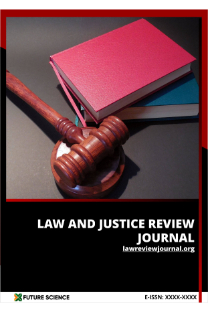Türk-Çin İki Taraflı Yatırım Antlaşması Rejimi: Geçmiş, Günümüz ve Gelecek
İki taraflı yatırım antlaşmaları ya da anlaşmaları yabancı yatırımların teşvikinde önemli bir rol oynamaktadır. Ellili yılların sonlarından başlayarak, bu anlaşmaların uygulanmasında oldukça yoğun bir gelişme olmuştur. Özellikle, uyuşmazlık çözüm hükümleri gündemin kalbini oluşturmaktadır. Uyuşmazlık çözümünde ICSID Konvansiyonu kapsamında uluslararası tahkim en çok tercih edilen yer olarak belirmektedir. Dünya genelindeki bu eğilim doğrultusunda, uzun sureli bir ticaret ve yatırım ortağı olarak Türkiye ve Çin iki taraflı yatırım anlaşma sistemini yenilemeyi öngörmüşlerdir. Her iki ülke kendi yatırımcılarının daha iyi bir yatırım ortamı için olan beklentilerini karşılamak üzere henüz yürürlüğe girmemiş olan yeni bir anlaşmayı 2015 yılında imzalamışlardır. Bu anlaşma şüphesiz Türk-Çin iki taraflı yatırım koruması rejimini arzu edilen koruma standartlarına getirecektir.
TURKISH – CHINESE BILATERAL INVESTMENT TREATY REGIME: PAST, PRESENT AND FUTURE
The bilateral investment treatiesor agreements play an important rolein encouraging foreing investments.Commencing from the late 50s therehave been immense developments inthe practice of these agreements. Inparticular, dispute settlement provisionshave been the core agenda. Of these,international arbitration under theICSID Convention has emerged as themost preferred venue for the disputesettlement. In line with the generaltendency worldwide, Turkey andChina getting an enduring trade andinvestment partnership envisioneda new arrangement in their bilateralinvestment agreement system. Bothcountries recently signed a newagreement in 2015, which has yetto be in force, in order to bring thecurrent (old) agreement to meet theexpectations of their investors for abetter environment of investment. Thisagreement undoubtedly brings Turkish-Chinese bilateral investment protectionregime to the desired standards ofprotection.
___
- YILMAZ İlhan, “Uluslararası Yatırım Tahkimleri”, Galatasaray Üniversitesi Hukuk Fakültesi Dergisi, 2006/1.
- YILMAZ ilhan, Uluslararası Yatırım Uyuşmazlıklarının Tahkim Yoluyla Çözümü ve ICSID, İstanbul 2004. (ICSID Jurisdiction).
- WEILER Todd/LAIRD Ian, “Standarts of Treatment”, in International Investment Law by MUCHLINSKI Peter/ORTINO Federico/SCHREUER Christoph (International Investment Law), 2008.
- WANG Guiguo, “Investor–State Dispute Settlement in China”, TDM, Vol.8, Issue 5, December 2011.
- UNCTAD, World Investment Report 2016.
- UNCTAD, World Investment Report 2011.
- UNCTAD, Most-Favoured-Nation Treatment, Series on Issues in International Investment Agreements (New York and Geneva: United Nations), United Nations publication, Sales No. 10.II.D.19.
- UNCTAD, Fair and Equitable Treatment. Series on Issues in International Investment Agreements (New York and Geneva: United Nations), United Nations publication, Sales No. E.11.II.D.15.
- SORNARAJAH Muthucumarswamy, The International Law on Foreign Investment, Second Edition, Cambridge 2005
- REINISCH August, “Expropriation”, in International Investment Law, by MUCHLINSKI Peter/ORTINO Federico/SCHREUER Christoph(International Investment Law), 2008.
- SCHREUER Christoph, “Full Protection and Security”, Journal of International Dispute Settlement, 2010, 1-17.
- SCHREUER Christoph, “The Concept of Expropriation under the ECT and other Investment Protection Treaties”, Investment Arbitration and Energy Charter Treaty adlı uluslararası konferansda sunulan tebliğ, Stockholm Arbitration Institute June 2005.
- The Report of the Executive Directors of the International Bank for Reconstruction and Development Bank on the Convention for Settlement of Investment Disputes between States and National of Other States, http:// icsidfiles.worldbank.org/icsid/ICSID/StaticFiles/basicdoc/basic-en.htm
- Report of the International Law Commission, Sixty-sevnth Session 2015, Annex, Final Report of the Study Group Report on the Most-Favoured-Nation Clause.
- ROONEY Kim, “Treaty Arbitration – Is it a real Alternative for China Investment Disputes ?”, TDM, Vol. 7, Issue 4, December 2012.
- REINISCH August, “Expropriation”, in International Investment Law, by MUCHLINSKI Peter/ORTINO Federico/SCHREUER Christoph (International Investment Law), 2008.
- PAULSSON Jan, “Indirect expropriation: is the right to regulate at risk?”, TDM, Vol.3, Issue 2, April 2006.
- NEWCOMBE Andrew, “The Boundaries of Regulatory Expropriation in International Law”, TDM, Vol.4, Issue 4, July 2007.
- INTERNATIONAL LAW COMMISSION Report of the International Law Commission, Sixty-seventh Session 2015, Annex, Final Report of the Study Group Report on the Most-Favoured-Nation Clause available at http://legal. un.org/docs/?symbol=A/70/10
- INTERNATIONAL LAW COMMISSION (ILC) (1978). “Draft articles on most- favoured-nation”, in Yearbook of the International Law Commission, Vol. II, Part Two. Available at: http://untreaty.un.org/ilc/texts/instruments/english/ draft%20articles/ 1_3_1978.pdf
- HAMIDA W. Ben, “MFN Clause and Procedural Rights: Seeking solutions from WTO Experiences”, TDM, Vol.6, Issue 1, March 2009.
- GALLUS N, “Plama v Bulgaria and the Scope of Investment Treaty MFN Clauses”, TDM, Vol.2 Issue 3 June 2005.
- FIETTA S, “Most Favoured Nation Treatment and Dispute Resolution Under Bilateral Investment Treaties: Turning Point”, TDM Vol.2 Issue 3 June 2005
- ELIASSON Nils, “Investment Treaty Protection of Chinese Natural Resources Investments”, TDM, Vol.7, Issue 4, December 2012.
- DULAC Elodie, “The Emerging Third Generation of Chinese Investment Treaties”, Transnational Dispute Management(TDM), Vol. 7, Issue 4, December 2010.
- DOLZER Rudolf/SCHREUER Christoph, Principles of International Investment Investment Law, 2008.
- DALHUISEN Jan H. / GUZMAN Andrew T, “Expropriatory and Non- Expropriatory Takings in International Investment Law”, TDM, Vol.10, April 2013.
- ATAMAN-FİGANMEŞE İnci, “The Impact of the Maffezini Decision on the Interpretation of MFN Clauses in Investment Treaties”, Ankara Law Review, Vol.8 No.2 (Winter 2011).
- ISSN: 1309-9485
- Yayın Aralığı: Yılda 2 Sayı
- Başlangıç: 2010
- Yayıncı: Türkiye Adalet Akademisi
Sayıdaki Diğer Makaleler
Türk-Çin İki Taraflı Yatırım Antlaşması Rejimi: Geçmiş, Günümüz ve Gelecek
Tıbbi Müdahaleye Rıza Kavramının Sözleşme Hukuku Açısından Değerlendirilmesi
Türk Hukuku’nda Kira Sözleşmeleri Alanındaki Önemli Değişiklikler
Uygulamada Patente Tecavüzün Belirlenmesi Ve Sinai Mülkiyet Kanunu’nun Konuyla Ilgili Düzenlemeleri
Çokkültürlülüğün Hukuka Yansıması: Osmanlı Tecrübesi
Önemli Miktarda Şirket Varlığının Satışında Genel Kurul Kararının Hukuki Niteliği
